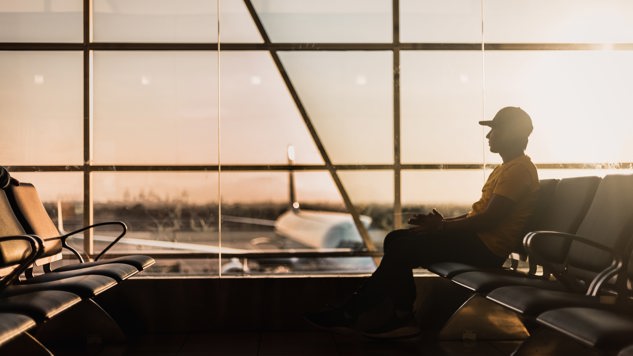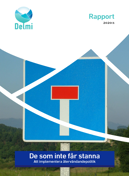Delmi's new study examines the willingness to return to the country of origin and the subsequent reintegration. The study and the results are based on 100 interviews with migrants who have returned voluntarily and involuntarily to Afghanistan and to Iraq. In 2020, informants answered questions regarding their lives before their arrival to Sweden, the asylum and return process as well as the reintegration in their country of origin. It fills a knowledge gap about asylum seekers' experiences and the prerequisites for a successful reintegration.
Voluntary and sustainable return and reintegration is a sought-after goal that is problematized by the authors of the report since the definitions reflect the political will of the EU and not the reality of the receiving countries. A context of political, social, and economic instability cannot be considered sustainable if the push factors remain after return. This is confirmed by the fact that more than half of the respondents plan to re-migrate.
The policy brief has also been translated into the respondents' native language: Arabic and Kurdish in Iraq and Pashto and Dari in Afghanistan. The aim is to increase the understanding of the return process and reach out to the target group and relevant actors internationally.
Some overall conclusions and recommendations
- Design a better communication strategy between agencies and migrants. A professionalization of translation services and in the role of the legal advisors would improve the legal certainty in the asylum process.
- A good reception in the country of origin starts already in Sweden. The agencies and authorities in the receiving countries must therefore take an active part. If the experiences from for example the embassies results in less trust that will discourage the willingness to return voluntarily.
- Reintegration programs should be tailored to the needs of individuals. Monitoring and evaluation of Swedish-funded return programs should be done to identify shortcomings and improve the routines.
- Legal pathways for work and study increase the incentive for voluntary return, which in turn reduce a risky re-migration and thereby create conditions for safe and orderly migration.
About the authors
The report, Those who were sent back: Return and reintegration of rejected asylum seekers to Afghanistan and Iraq (2021:10), is written by Henrik Malm Lindberg, associate professor of economic history, Constanza Vera-Larrucea, PHD in political science and André Asplund, PHD in international relations, all working as Research Coordinators at the Migration Studies Delegation.
Picture by Marco Lopez from Unsplash.

